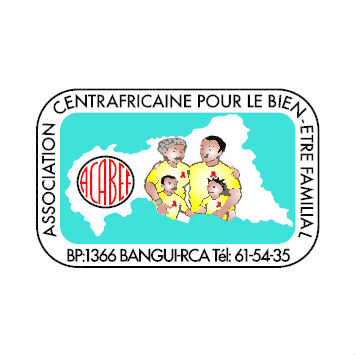

| 31 March 2016
Association Centrafricaine pour le Bien-Etre Familial
Sexual and reproductive health (SHR) statistics for the Central African Republic are some of the poorest on the continent. The need for proper, informed, accessible, safe, stigma-free sexual and reproductive health (SRH) services is paramount. The Association Centrafricaine pour le Bien-Etre Familial (ACABEF) came into being in 1987, expressly to address the urgent need for sexual and reproductive health (SRH) services. Working intensively within communities, the organization has grown rapidly over the years and now provides sexuality education and SRH services including family planning, gynaecological counselling and care, post-abortion care, antenatal care and voluntary counselling and testing (VCT) for HIV. ACABEF operates permanent and mobile clinics with community-based distribution sites (CBDs). In addition to full-time health personnel and administrative staff, the organization relies on the dedicated support of hundreds of volunteers, a Youth Action Movement and over a hundred trained peer educators. And ACABEF's outcomes are impressive. The majority of all services were provided to poor, marginalized, socially excluded and/or under-served people. ACABEF works in partnership with the government ministries in charge of planning, health and family and social affairs. It benefits from the support of CISJEU and its donors include UNFPA and Population Services International. ACABEF has close working relationships include CIONGCA (which coordinates the response of all NGOs working at national level), the Central African Network of People living with HIV (RECAPEV), the Réseau des Organisations Nationales de Lutte contre le SIDA (RONALSI) and Amis d’Afrique.

| 31 March 2016
Family Planning Association of India
Established in 1949, the Family Planning Association of India (FPAI) is a founding member of IPPF. Its work in sexual and reproductive health (SRH) covers safe motherhood and child survival, empowerment of women, male involvement, adolescent health and youth development. FPAI works closely with non-governmental organizations (NGOs) and the government. It runs 39 permanent clinics, 101 mobile facilities, and has a network of nearly 2,700 community-based distributors /services (CBDs/CBSs). It works with 563 private practitioners and 196 other agencies. In addition, FPAI operates 3 infertility clinics, a contraceptive retail sales programme, and a condom dispensing service. In total, FPAI operates over 4,000 service points. A community-centred approach is at the core of FPAI's work. Our programmes are designed to deliver improved health and standards of living, better decision-making, and greater self-reliance. It aims to enable men and women to form local voluntary groups to initiate action in communities. Work primarily focuses on under-served rural areas and urban slums. The organization exploits a variety of media to impart its message, including film, radio, newsletters, journals and other print materials, as part of a wide-ranging education programme addressing topics such as family planning, maternal and child health, the risks of unsafe abortion, infertility, the prevention of sexually transmitted infections (STIs) and counselling for newlyweds. FPAI encourages the empowerment of women through mahila mandals (women's groups), balwadis (nursery schools), and literacy and income generation programmes. It’s been addressing the concerns of young people in a holistic manner through 30 Sexuality Education, Counselling, Research, Training/Therapy (SECRT) Centres spread acrosss the country. The centres offer youth-friendly services that prepare young people for their future by building the confidence and self-esteem essential to forging healthy relationships. They also offer counselling and information on various developmental issues, including sex, coping with preer pressure, relationships, responsible sexual behaviour, marriage, parenthood, contraception and the prevention of STIs including HIV and AIDS. As an advocate, FPAI exerts influence through community representatives, through the media, and through representation on government bodies such as the Central Health and Welfare Council and Steering Committee on Population Education. Contacts Website: http://fpaindia.org/ Facebook: https://www.facebook.com/FPAI.national







